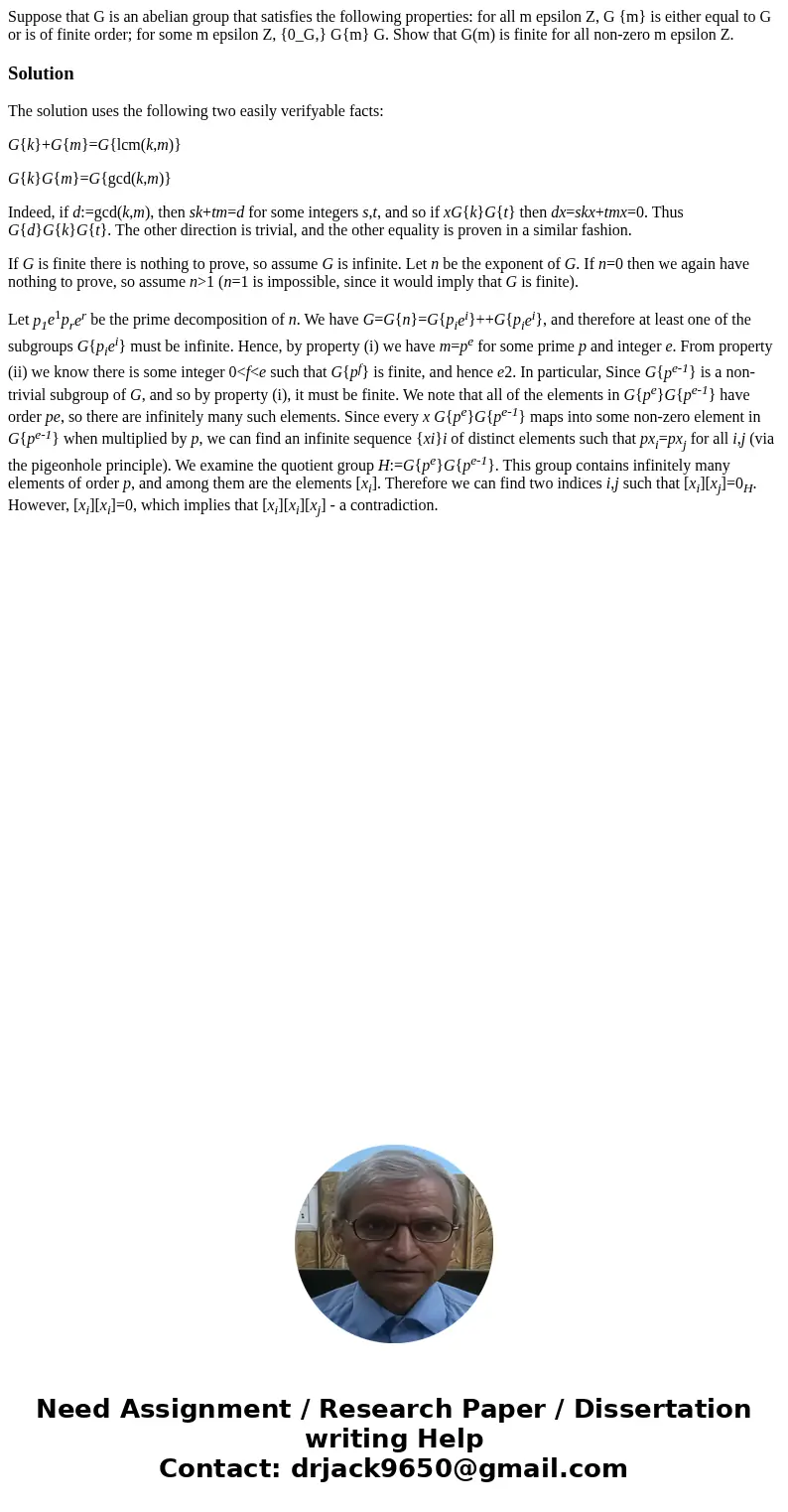Suppose that G is an abelian group that satisfies the follow
Solution
The solution uses the following two easily verifyable facts:
G{k}+G{m}=G{lcm(k,m)}
G{k}G{m}=G{gcd(k,m)}
Indeed, if d:=gcd(k,m), then sk+tm=d for some integers s,t, and so if xG{k}G{t} then dx=skx+tmx=0. Thus G{d}G{k}G{t}. The other direction is trivial, and the other equality is proven in a similar fashion.
If G is finite there is nothing to prove, so assume G is infinite. Let n be the exponent of G. If n=0 then we again have nothing to prove, so assume n>1 (n=1 is impossible, since it would imply that G is finite).
Let p1e1prer be the prime decomposition of n. We have G=G{n}=G{piei}++G{piei}, and therefore at least one of the subgroups G{piei} must be infinite. Hence, by property (i) we have m=pe for some prime p and integer e. From property (ii) we know there is some integer 0<f<e such that G{pf} is finite, and hence e2. In particular, Since G{pe-1} is a non-trivial subgroup of G, and so by property (i), it must be finite. We note that all of the elements in G{pe}G{pe-1} have order pe, so there are infinitely many such elements. Since every x G{pe}G{pe-1} maps into some non-zero element in G{pe-1} when multiplied by p, we can find an infinite sequence {xi}i of distinct elements such that pxi=pxj for all i,j (via the pigeonhole principle). We examine the quotient group H:=G{pe}G{pe-1}. This group contains infinitely many elements of order p, and among them are the elements [xi]. Therefore we can find two indices i,j such that [xi][xj]=0H. However, [xi][xi]=0, which implies that [xi][xi][xj] - a contradiction.

 Homework Sourse
Homework Sourse